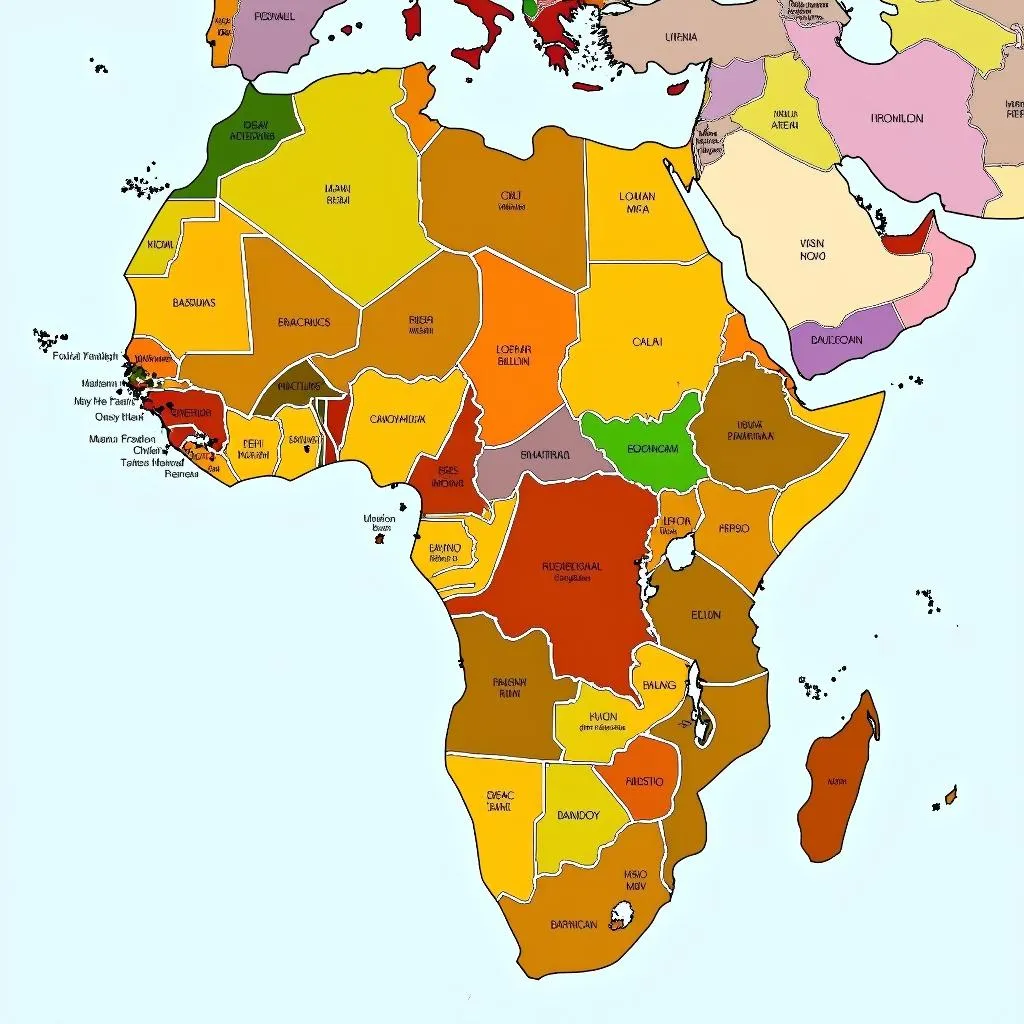African Languages: An Introduction to the Rich Tapestry of Sounds
Africa is a continent of incredible diversity, and one of the most striking aspects of this diversity is its language landscape. Home to over 2,000 languages, Africa boasts a rich tapestry of sounds, rhythms, and expressions that reflect the continent’s rich history and cultural heritage. This article delves into the fascinating world of African languages, offering an introduction to the key features, classifications, and significance of these vibrant linguistic expressions.
Understanding the Linguistic Diversity of Africa
The sheer number of languages spoken in Africa is a testament to the continent’s long history and diverse populations. These languages are not just a means of communication but also a reflection of the unique cultures, traditions, and histories of the people who speak them. To understand the complexity of this linguistic landscape, it’s important to delve into the major language families that shape Africa’s linguistic tapestry.
The Major Language Families of Africa
The languages of Africa are grouped into several major families, each with its own unique history and characteristics:
- Afro-Asiatic: This family is one of the largest in the world, encompassing languages spoken across North Africa, the Horn of Africa, and parts of the Sahel. Some of the most prominent members of the Afro-Asiatic family include Arabic, Berber, Hebrew, and the Cushitic languages of Ethiopia and Somalia.
- Niger-Congo: This is the largest language family in Africa, comprising over 1,500 languages spoken across sub-Saharan Africa. The Niger-Congo family is further subdivided into numerous branches, including Bantu, Mande, and Kwa. Some notable Bantu languages include Swahili, Zulu, and Xhosa, which are spoken by millions of people across the continent.
- Nilo-Saharan: This language family is found mainly in East-Central and Northeast Africa, encompassing languages such as Dinka, Nuer, and Kanuri.
- Khoisan: The Khoisan languages are spoken by indigenous groups in Southern Africa and are characterized by their unique click consonants. These languages are considered to be among the oldest in the world.
The Significance of African Languages
Beyond their sheer number and diversity, African languages hold significant cultural, social, and economic importance. They are the foundation of African identities, preserving and transmitting cultural knowledge, traditions, and values across generations.
The Importance of Preservation
The preservation of African languages is essential for maintaining cultural heritage and linguistic diversity. As globalization and modernization continue, many African languages face the threat of extinction. Efforts to document, revitalize, and promote these languages are crucial to ensuring their survival and the continuation of the rich cultural tapestry of Africa.
“The preservation of our languages is critical for the preservation of our identities and our cultural heritage,” says Dr. Amina Mohammed, a renowned linguist specializing in African languages. “Each language holds a unique treasure trove of knowledge, wisdom, and stories that should be passed down to future generations.”
The Role of Education
Education plays a vital role in the preservation and promotion of African languages. The inclusion of these languages in school curriculums, alongside the development of educational materials and resources, is crucial for ensuring that future generations are fluent in their mother tongues.
“When children are educated in their native languages, they are more likely to be successful in their learning, and they develop a stronger sense of their identity and cultural heritage,” emphasizes Professor Olufemi Ajadi, an expert in language education.
The Economic Benefits of Multilingualism
Beyond cultural significance, the development and promotion of African languages hold significant economic potential. The ability to communicate in multiple languages, including indigenous African languages, can open up new opportunities for trade, tourism, and cultural exchange.
“Multilingualism is an asset in today’s globalized world,” states Dr. Kofi Annan, former Secretary-General of the United Nations. “The promotion of African languages can create opportunities for economic development and enhance international cooperation.”
Exploring the World of African Languages: Further Resources
This introduction has merely scratched the surface of the fascinating world of African languages. To delve deeper into the history, culture, and diversity of these languages, there are many resources available:
- Pan African Language Program (PALP): This organization works to promote the development and use of African languages in education and other domains.
- The African Language Institute: Based in South Africa, this institute offers a wide range of resources and programs for the study of African languages.
- Online Dictionaries and Language Learning Platforms: Many websites and apps offer dictionaries, language learning courses, and other resources for those interested in exploring African languages.
Shortcode-1: african-languages-diversity|A vibrant display of language diversity in Africa|This image shows a diverse group of individuals speaking different African languages, highlighting the rich linguistic tapestry of the continent.
Shortcode-2: african-language-preservation|A student learning an African language|This image represents the importance of education in preserving African languages and ensuring their continued vitality for future generations.
Shortcode-3: african-language-economic-benefits|A business meeting with individuals speaking different African languages|This image emphasizes the economic benefits of multilingualism, showcasing the potential for trade and economic development through the promotion and use of African languages.
Conclusion
African languages are a vibrant and integral part of the continent’s cultural heritage. Their diversity and richness reflect the unique histories, traditions, and identities of the people who speak them. The preservation and promotion of these languages are not only essential for maintaining cultural diversity but also for fostering economic development and building a more inclusive and interconnected world.


